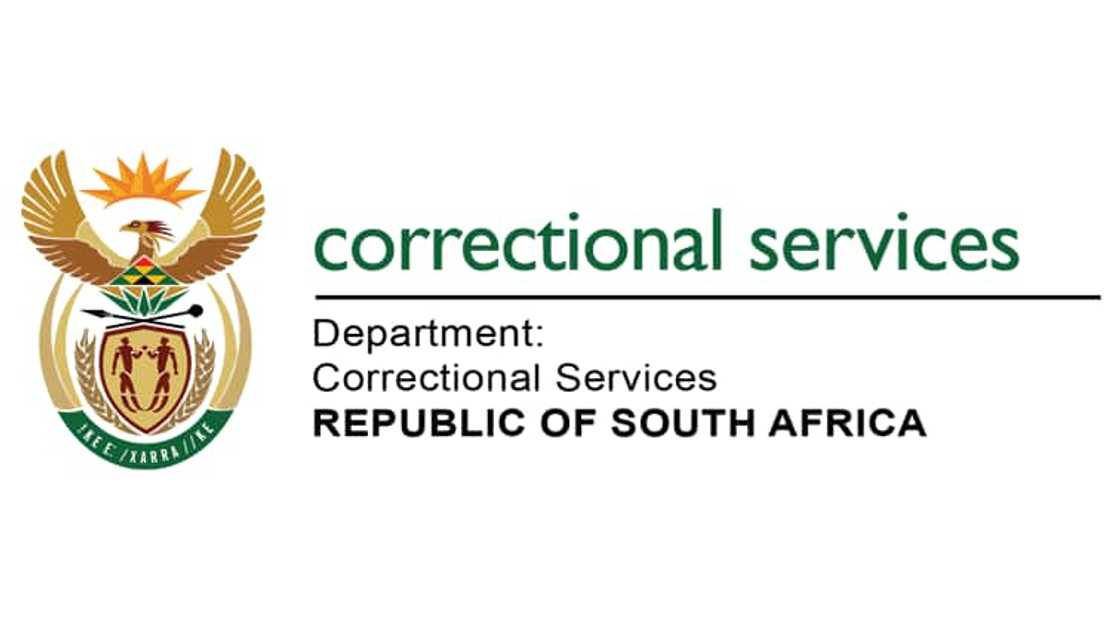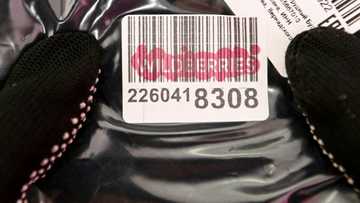Correctional services learnership application, forms, dates 2022
The Department of Correctional Services (DCS) is a department of the South African national government tasked with running the country's prison system. Each year, the DCS offers a training opportunity known as the correctional services learnership. This is a part of the government's larger national skills development strategy designed to ease poverty by equipping people with relevant skills.

Source: Instagram
The learnership is made up of theoretical and practical training centred around the rehabilitation of prisoners. Trainees undergo the 1-year program and learn handy skills like human development and correction, secure detention, and community-based supervision.
Everything to know about the correctional services learnership
Here is a look at the requirements, structure, and application steps for the learnership.
Requirements
What qualifications do I need to work at correctional services? The learnership is open to a wide range of people. Still, one must meet various requirements before their application can be considered.
- The applicant must be a South African citizen.
- One must have a Standard 10 or Grade 12 school certificate.
- The applicant must have a Further Education and Training Certificate NQF (Level 4) or have successfully completed the National Certificate in Vocational Studies (NQF Level 4).
- Be between 18 and 35 years.
- The applicant must be a law-abiding citizen without a criminal record (particulars of pending criminal cases must be provided in the application form)
- The applicant must be prepared to subject themselves to a selection process conducted by the Department of Correctional Services.
- The applicant must be prepared to subject themselves to physical training and firearms training conducted by DCS. They must also disclose information about their qualifications and citizenship and allow the same to be verified by the DCS.
- The DCS will give preference to applicants who have additional qualifications such as trade or occupational-based certificates, diplomas, or degrees related to security and corrections.

Read also
Matric results: Expert proclaims 'active citizenship' is key to systemic change in education
How is the DCS learnership structured?

Source: UGC
The learnership is divided into two sections: theory and practical.
Theoretical training
Theoretical training takes up 30% of the entire learnership and is conducted at an institution accredited by the DCS. The training includes self-defence classes, firearm handling, and physical training. Since the training is compulsory for every learner, you will be expected to remain at the training facility throughout the duration of the theoretical course.
During this part of the learnership, trainees receive free accommodation, uniform, meals, and all the training materials required for the course.
Practical (workplace) training
Once trainees complete the theoretical phase, it is time to move on to the practical bit. This one takes up 70% of the learnership. The workplace training takes place at the country's correctional and social reintegration centres.
This part of the learnership sees trainees handle responsibilities related to the rehabilitation and protection of offenders. Unlike the theoretical part, learners are expected to cater for their own transport, meals, and accommodation.
Once the learner completes the practical part, they are expected to submit a portfolio of evidence (PoE) and then undergo external verification by SASSETA (Safety and Security, Sector Education & Training Authority). The learner will then receive a FET Certificate in Corrections Services NQF 4.
How do I apply for the 2022 Correctional Services?
How do I apply for Correctional Service learnership? Here are the necessary application steps.
- Visit the e-DCS website and navigate to the forms section under opportunities. You will find a link to download the correctional service application form for 2022.
- Download the form since you will be required to fill it out in your handwriting.
- Alternatively, you can collect an application form at any correctional services office.
- Fill out the form, making sure not to leave out any required information.
- When filling out your details, make sure to specify the learnership post and province you are applying for since the opportunities are available across the country.
- Sign the form. (Unsigned applications are not accepted).
- Attach certified copies of your certificates and national ID (these copies must have been certified within the last 3 months).
- Drop your application form at any correctional services office.
- Keep in mind that the department will not accept late, photocopied, or faxed forms.

Read also
2 SA former convicts advocate for education and prison reform as inaugural Global Freedom Fellows
What is the correctional services learnership closing date?
The correctional services learnership 2022 application is still ongoing (as of May 2022). The DCS has not communicated the closing date.
What is a Learnership?
A Learnership is a work-based learning program. This means that classroom studies (theoretical) at a college or training centre are combined with practical (workplace) training. The premise behind this concept is that people learn much better when they can apply their classroom training in a workplace environment.
Does the DCS provide a stipend?

Source: UGC
Yes, all learners receive an R3,500 stipend every month for the entire 12 months of the learnership.
Is there a training fee?
No, all trainees are taught for free until they receive their FET certification. One does not have to pay any study fees.
Who qualifies for the learnership?
The learnership is open to South African citizens aged between 18 and 35 years. However, there are additional requirements one must meet for their application to be considered. These have to do with their education and character.
What is the DCS?
The Department of Correctional Services is a department of the South African government responsible for running the country's prison system.
How many points are needed for correctional services?
To be considered for this training, applicants must have an Admission Point Score (APS) of at least 20.
How can I contact the DCS?
Here are the different ways one can get in touch with the Department of Correctional Services.
- Location: Poynton's Building, West Block, Shubart Street, Pretoria
- Postal address: Private Bag X136, Pretoria, 0001
- Telephone: (012) 307-2000
- Fax: (012) 328-6149
The correctional services learnership is an excellent opportunity for those looking to acquire skills and knowledge related to rehabilitation, protection, custody, and community-based correction for prisoners and other offenders.
READ ALSO: All South African emergency numbers you had better save
Briefly.co.za recently published an article containing all the South African emergency numbers one needs to have. While no one ever plans to find themselves in a crisis, occurrences such as fires, break-ins, medical emergencies, and earthquakes can happen at any time. This makes it necessary to have the right numbers to call for help.
South Africa has numerous emergency numbers, some meant for specific emergencies and others for general ones. Which are these essential numbers?
Source: Briefly News

Bennett Yates (Lifestyle writer) Bennett Yates is a content creator with over six years of working experience in journalism and copywriting. He graduated from the University of Nairobi (2017) with a Bachelor's in Information Technology. In 2023, Bennett finished the AFP course on Digital Investigation Techniques. He has worked for Briefly.co.za for six years now. He specializes in topics like technology, entertainment, travel, lifestyle and sports. You can reach him via email at bennetyates@gmail.com.

Jackline Wangare (Lifestyle writer) Jackline Simwa is a content writer at Briefly.co.za, where she has worked since mid-2021. She tackles diverse topics, including finance, entertainment, sports, and lifestyle. Previously, she worked at The Campanile by Kenyatta University. She has more than five years in writing. Jackline graduated with a Bachelor’s degree in Economics (2019) and a Diploma in Marketing (2015) from Kenyatta University. In 2023, Jackline finished the AFP course on Digital Investigation Techniques and Google News Initiative course in 2024. Email: simwajackie2022@gmail.com.



